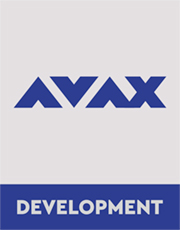28 Aug 2025
Understanding ROI in Greek Real Estate: A 2025 Guide for Investors

Greece has become one of the most attractive destinations in Europe for property investment. With its stable tourism growth, favorable legislation for foreign buyers and a rising demand for quality rentals, investors are increasingly turning to Greek real estate not only for lifestyle benefits but also for strong long-term returns.
Whether you’re eyeing a holiday home in Crete, a rental apartment in Athens or a boutique unit in the Cyclades, one of the most important factors to consider is Return on Investment or ROI.
Why ROI Matters in the Greek Market
ROI is the key performance indicator for measuring how efficiently your capital is working for you. Especially in Greece where property prices have rebounded but still remain competitive compared to much of Europe, ROI helps you assess if a rental property will truly generate income that justifies the initial cost.
Tourism hotspots like Santorini, Paros, Chania and the Athens Riviera can offer attractive yields. However, to make the most of the Greek market, you need to calculate ROI based on actual costs, rental demand and future appreciation potential.
What Goes Into Real Estate ROI?
Several variables influence real estate ROI in Greece:
- Initial investment: Property price, transfer tax, notary fees, renovations and furnishing
- Rental income: Gross income from short- or long-term leases
- Operating costs: Property management, insurance, maintenance, utilities and municipal fees
- Financing: Down payment, loan terms and annual interest
Basic ROI Formula
ROI = (Net Annual Profit ÷ Total Investment) × 100
Net profit means your rental income minus all operating costs. If you bought with financing, you’ll also subtract mortgage payments before calculating the return.
Cash vs Financed Investment: ROI Comparison
Cash Purchase Example
You buy a studio in Athens for €120,000. After furnishing and fees your total investment is €130,000. If the property earns €13,000 per year after expenses, your ROI is:
€13,000 ÷ €130,000 = 10%
Financed Purchase Example
You buy a property for €200,000 with a €50,000 down payment. After mortgage payments and expenses, your net income is €8,000 per year. Your ROI is:
€8,000 ÷ €50,000 = 16%
This shows how leverage can increase your return as long as cash flow remains positive.
Calculating Net Operating Income in Greece
Net Operating Income or NOI is essential for understanding rental profitability. Here’s how it works:
- Gross income: €24,000 (from Airbnb or long-term rent)
- Operating expenses: €9,000 (including management, cleaning, insurance and taxes)
- NOI: €15,000
These €15,000 forms the base for your ROI or cap rate calculations.
Additional Metrics Investors Should Know
Cap Rate
Formula: NOI ÷ Property Price
Used to compare yields across different areas or property types. In Greek cities, cap rates typically range from 5% to 8% depending on location.
Cash-on-Cash Return
Formula: Annual Cash Flow ÷ Cash Invested
Especially useful for properties with financing. It shows what you’re earning from your actual capital.
Leverage and Growth in the Greek Market
Financing property in Greece has become more accessible in recent years. Greek banks now offer better terms for foreign buyers and this opens new possibilities for increasing ROI.
While mortgage rates can slightly affect profitability, the equity you build through repayments and appreciation can significantly boost long term returns. This is particularly true in regions like Chania, Syros and the Athenian suburbs where property values are steadily rising.
Conclusion: ROI as Your Investment Compass
In the evolving Greek property market, ROI remains your most valuable metric. It allows you to filter out emotional decisions and focus on sustainable returns.
Whether you’re targeting short term rentals in popular islands or long-term tenants in the city, mastering ROI will help you choose the right property, use your capital efficiently and build wealth over time.
